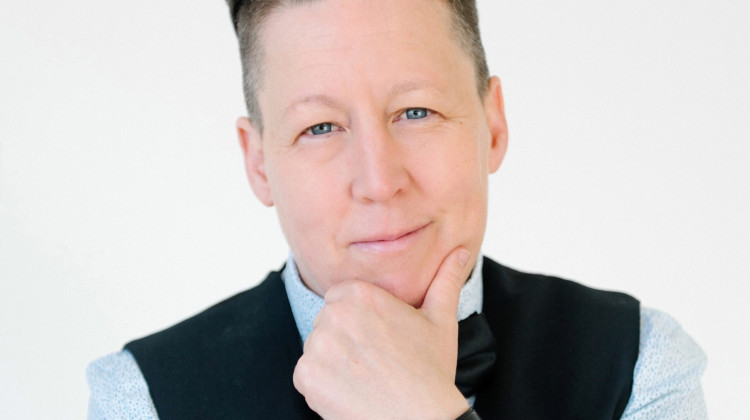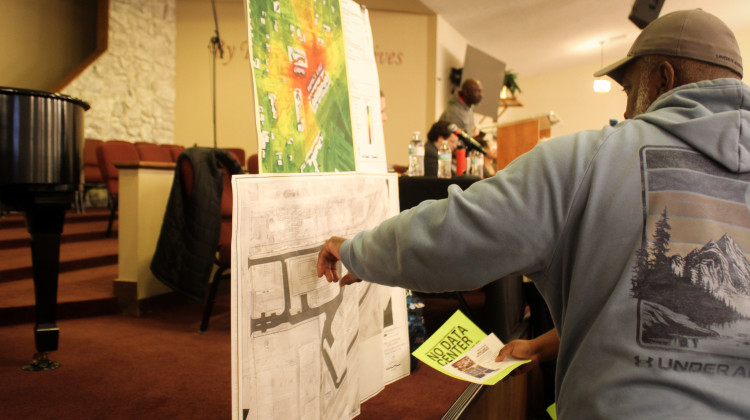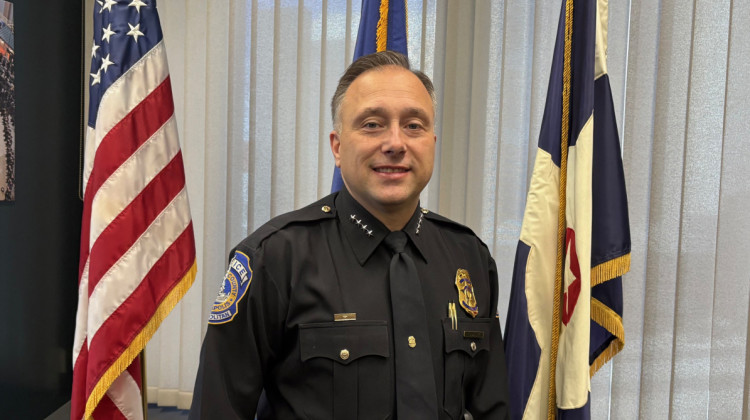A movement that started in North Carolina is taking root in Indiana. This weekend, Indiana Moral Mondays heard from its chief architect -- a native Hoosier who draws inspiration for his political strategy from the past.
Rev. William Barber II was born in Indianapolis, and he came back to fire up Indiana’s version of the movement he started in North Carolina. Indiana Moral Mondays is a coalition of more than 50 groups, with interests ranging from civil rights and economic justice to climate change and immigrants’ rights. And on Saturday, it drew about 300 people Saturday to a rally with Barber at the state capital.
"In the southlands we have a phrase ‘forward together, not one step back.' Our movement is one that believes that the moral purpose of political power should only be used to take us forward. It should only be used for the uplift of all people," Barber told the crowd.
Barber has been the head of the N.C. NAACP for almost 10 years, and well before April of 2013 – when thousands of people started turning out each Monday at the state capital in Raleigh -- his “Forward Together Moral Movement” as it’s called -- had been at work in North Carolina.
"When we examined state government, it was the most powerful force in terms of the issues we were concerned about in the state. And when we looked at the voting records, we saw that the same people who were voting against education were the same people voting against labor rights were the same people voting against environmental justice, were the same people voting against the LGBT community and the immigrant community," Barber said. "Our argument was if they are that committed to be together, we ought to be more committed to come together."
Indiana shares many of the same social and economic problems that face his state, Barber said – high rates of child poverty, a lack of affordable health care and living-wage jobs, problems that are exacerbated by what he calls “extremist” ideology that dominates among state lawmakers.
"We’re here to say we need an independent movement. I’m not here to lead it," Barber said. "I’ve simply said you must have people from this state to rise up in a deeply moral, deeply constitutional, state-government focused, transformative fusion coalition that’s anti poverty, anti-race, pro-justice, pro-labor, to push back, not from a right perspective or a left perspective or a conservative perspective or a liberal perspective, but from a moral perspective – from our deepest constitutional values and moral values, because that’s what moves people to change and to get involved."
His term "transformative fusion" is a reference to the post-Civil War "fusion" coalitions between blacks and whites that advocated voting rights and education and challenged the dominance of Southern Democrats more than 100 years ago.
Barber’s group pushed voting reforms like same-day registration and early voting, reforms that he says helped propel President Barack Obama to his victory in states like North Carolina in 2008.
"The electorate in the South, it was deep, it was broad, it was black, it was white, it was Asian, it was Latino, it was gay, it was straight, it was Republicans, it was Democrats, it was Independents. It was a new electorate that broke through the old white southern strategy."
But then came the backlash. In 2010, conservative Republicans broke the Democrats’ 100-year stronghold on the North Carolina General Assembly. Two years later, they won the governor’s office as well, and for Barber, perhaps the most troubling of the changes was the new majority’s push for restrictive voting laws that include requiring photo ID to vote.
"They rolled out this voting law on Maundy Thursday. So many of us said, 'We need a witness. We’re going to going to engage in civil disobedience. We're going to take it another step. We wanted to dramatize the shamefulness of the conditions. We always marched in protest … but we decided that we needed civil disobedience to dramatize the shamefulness of the conditions. What happened when 17 of us went in (to the Legislative Building) during Pentecost. The next Monday, we didn’t even have to call anyone, they just came," Barber said.
What happened next grabbed headlines far beyond the state. By the end of the summer, more than 900 people had been arrested for trespassing in the Legislative Building, and Moral Monday demonstrations went on for 77 weeks in a row. (A Wake County, N.C. judge has since dismissed most of the charges.) Barber has met with groups in states from Wisconsin to Florida and Alabama. Here in Indiana, Moral Monday organizers have been meeting for several months, but they have yet to decide how they’ll carry out their campaign for change on the social and economic issues that unite them.
 DONATE
DONATE







 Support WFYI. We can't do it without you.
Support WFYI. We can't do it without you.